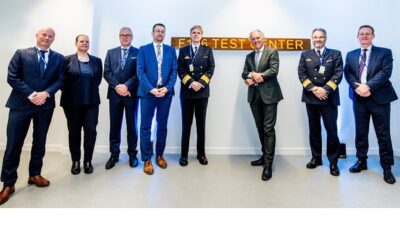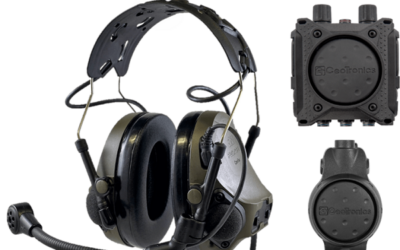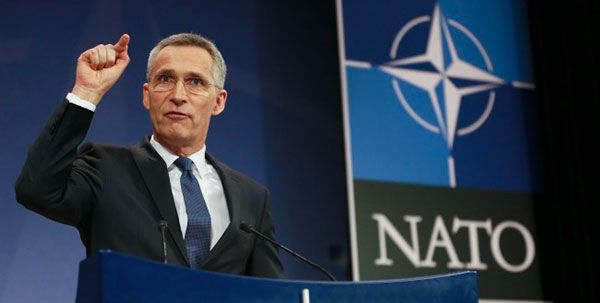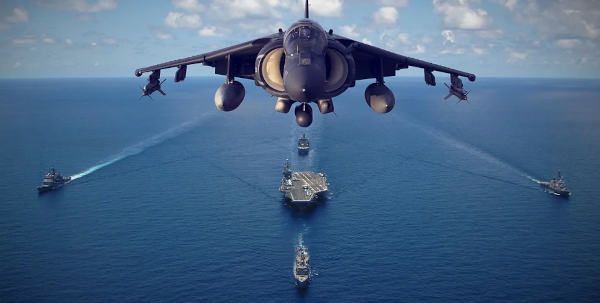NATO Defence Ministers Discuss Potential Threats, Burden-Sharing and Russian Cyber Aggression
After the NATO Summit in July, the national Defence Ministers met on 3-4 October to discuss a series of potential threats to the Atlantic Alliance and the progress in implementing the decisions taken by the political leadership at the Brussels Summit. Key topics for the regular meeting were the ongoing US demands for fair burden-sharing, Russia’s violation of the Intermediate-Range Nuclear Forces (INF) Treaty and Russian cyber-attacks around the world.
NATO Secretary General Jens Stoltenberg told a press conference after the meeting that the Atlantic Alliance is facing an unpredictable and unstable world and that all efforts to strengthen NATO’s deterrence and defence have to be sustained over the next several years. “There is a renewed sense of urgency for all Allies to invest more in defence: to move forward on all aspects of burden-sharing – cash, capabilities and contributions to NATO missions and operations,” he stated.
He highlighted that 2018 will be the fourth consecutive year of rising defence spending, but that NATO still has a long way to go. Referring to the commitment to credible defence plans, he pointed out “I would expect these to show real increases in defence spending year on year, and a realistic path to two percent of Gross Domestic Product (GDP) on defence. Allies will report on the national plans before the end of this year, and we intend to discuss them at our next Defence Ministers Meeting in February.” He expects that eight allies are likely to meet the two percent increase in 2018.
The Defence Ministers expressed their concerns regarding the 1987 INF Treaty, agreed as a consequence of NATO’s heavily-debated dual-track decision in 1979. Stoltenberg highlighted the famous agreement saying that the “INF Treaty is a cornerstone of European security,” because it abolishes a whole category of weapons. “We believe this treaty is in danger because of Russia’s actions. After years of denials, Russia recently acknowledged the existence of a new missile system, called 9M729. This system is destabilising. It is a serious risk to our security,” the Secretary General made crystal clear to the press. NATO’s most plausible assessment is that Russia is in violation of the INF Treaty. The Ministers therefore called upon Russia to address NATO’s serious concerns.
The Ministers were briefed by the Netherlands on the targeting of the offices of the Organisation for the Prohibition of Chemical Weapons (OPCW) in The Hague by the Russian military intelligence service, the GRU. Fortunately, it was disrupted by the Dutch intelligence services in partnership with the United Kingdom. The UK has also identified the GRU as being behind a number of other cyber-attacks, which have affected citizens in many countries, including Russia, and caused enormous economic costs.
NATO Allies expressed their solidarity with the decision by the Dutch and British governments to call out Russia on its blatant attempt to undermine international law and international institutions. Their political message: “Russia must stop this reckless pattern of behavior, including the use of force against its neighbours, attempted interference in election processes, and widespread disinformation campaigns.”
In response to its levels of concern, NATO will continue to strengthen defence and deterrence in the cyber domain and will set up a new Cyber Operations Centre, thus bolstering cyber resilience and integrating national cyber capabilities into NATO missions and operations. Some Allies have successfully used their cyber capabilities against ISIS in Iraq and Syria to suppress terrorist propaganda, hinder their ability to coordinate attacks, and to protect forces on the battlefield.
Stoltenberg reported that several Allies have offered their cyber capabilities to NATO, which are expected to make the Alliance as strong in cyberspace as it is on land, at sea and in the air. “Cyber threats are so important that cyber has become a new military domain next to air, land and sea,” he observed. NATO is also making progress in setting up new Counter Hybrid Support Teams. These teams will provide tailored assistance to the member nations with the clear goal to respond to hybrid attacks.
The Defence Ministers had started their meeting with a gathering of the NATO-Georgia Commission, in order to discuss Georgia’s desire to join the Alliance. Stoltenberg said that the political leaders at the July Summit had already reaffirmed Georgia’s aspiration for NATO membership and expressed his serious concerns regarding Russia’s military build-up in the Black Sea region, stating that “Black Sea security is a priority for NATO and for Georgia.”
According to Stoltenberg, NATO will need to respond much more strongly to the instability on its southern borders. The new training mission in Iraq will help local forces to secure their country, and the Alliance will continue to support other partners, such as Jordan and Tunisia, helping to improve their defence and security capabilities. NATO’s hub for the South in Naples is working to monitor and understand regional threats, such as terrorism and failing states.
Since the July Summit had endorsed implementation of NATO’s reinforced maritime posture, Defence Ministers from thirteen NATO nations signed a declaration of intent to cooperate on the introduction of Maritime Unmanned Systems on 3 October. This initiative will enable Belgium, Denmark, Germany, Greece, Italy, Netherlands, Norway, Poland, Portugal, Spain, Turkey, the United Kingdom and the United States to pool their resources to create better, more flexible and more interoperable unmanned maritime vehicles and systems. The use of unmanned systems is a potentially game-changing leap forward in maritime technology and will enable NATO to be significantly more effective in crucial areas such as detecting and clearing mines and finding and tracking submarines. Working alongside traditional naval assets, unmanned systems will increase both NATO’s situational awareness and control.
Theodor Benien
























